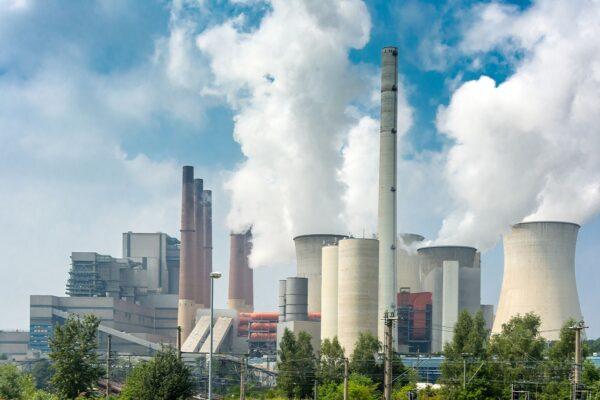The rise of eco-conscious consumerism is one of the most significant shifts in the marketplace today. Consumers are increasingly aware of the environmental and social impacts of their purchases, and they want to make choices that align with their values. From sustainable products to ethical business practices, consumers are looking for brands that not only offer quality but also contribute positively to the planet and society.
For businesses, this shift presents both challenges and opportunities. Embracing eco-conscious consumerism is no longer optional, it’s a necessity! But how can businesses adapt to this growing demand for sustainability, and what steps can they take to ensure they meet the expectations of today’s conscious consumers?
Read other articles : Blue Economy in Indonesia: Business Innovations for SDG 14 (Life Below Water)
Table of Contents
ToggleWhy Are Consumers Becoming More Eco-Conscious?

Several factors are driving the rise of eco-conscious consumerism. Some key drivers include:
- Climate Change Awareness: Increased awareness of climate change and environmental degradation has led many consumers to reconsider their consumption patterns. People are more mindful of their carbon footprints and want to make choices that support a healthier planet.
- Social Responsibility: Consumers expect brands to be socially responsible and transparent. Issues like fair labor practices, animal welfare, and environmental sustainability are top of mind.
- Access to Information: The internet and social media have made it easier for consumers to research products and brands. With information readily available, people are more informed about the impact of their purchases and are willing to support companies that align with their values.
- Millennial and Gen Z Influence: Younger generations, particularly millennials and Gen Z, are more likely to support eco-friendly brands. They prioritize environmental sustainability in their purchasing decisions and are more likely to share their experiences with others.
As eco-consciousness becomes more mainstream, businesses must take notice and adapt their strategies to stay competitive.
What Does Eco-Conscious Consumerism Mean for Your Business?
For businesses, this trend is a call to action. It’s not enough to simply offer “green” products or make empty sustainability claims. Eco-conscious consumers are looking for authenticity, transparency, and real change. Here’s what your business needs to know:
- Consumers Are Demanding More: Simply using recycled materials or labeling a product as “eco-friendly” is no longer enough. Shoppers want to know where the materials come from, how the product is made, and the impact it has on the environment. Businesses must be transparent about their supply chains and sustainability practices.
- Sustainability Drives Loyalty: Brands that authentically embrace sustainability often see stronger consumer loyalty. When customers feel that their values align with your company’s values, they’re more likely to return and recommend your brand to others.
- Sustainability is a Competitive Edge: As more businesses join the sustainability movement, having a strong sustainability message can help differentiate your brand. Whether it’s through eco-friendly products, sustainable packaging, or ethical practices, being a leader in sustainability can position your company as a forward-thinking, responsible brand.
- There’s Pressure to Report: Many eco-conscious consumers expect businesses to report on their environmental and social impacts. From reducing carbon emissions to ensuring fair labor practices, consumers want to see tangible proof that companies are doing the work. This is where platforms like SatuPlatform come in, providing businesses with tools to track and report on their ESG (Environmental, Social, and Governance) performance.
How Can Your Business Adapt to the Eco-Conscious Consumer Movement?
There are several ways businesses can meet the demands of today’s eco-conscious consumer. Here are some actionable steps:
- Audit Your Supply Chain: Start by evaluating your supply chain to understand where improvements can be made. Are your materials sustainably sourced? Are your suppliers meeting environmental and ethical standards? Taking the time to audit your supply chain can help identify areas for improvement and strengthen your sustainability credentials.
- Invest in Sustainable Products and Services: If you haven’t already, consider offering products or services that are more eco-friendly. This could mean switching to recycled materials, using biodegradable packaging, or offering energy-efficient products.
- Communicate Your Sustainability Efforts: Transparency is key. Communicate your sustainability efforts to consumers through your website, social media, and product packaging. Show them how your products are made, where they come from, and the steps you’ve taken to reduce environmental impact.
- Create Sustainable Merchandise: For businesses that use promotional products or branded merchandise, choosing sustainable materials can make a huge difference. TRI Cycle helps companies create custom, eco-friendly merchandise that not only represents their brand but also supports their sustainability goals. From recycled materials to upcycled products, sustainable merchandise can be an impactful way to communicate your values.
- Track and Report Your ESG Performance: As mentioned earlier, consumers and investors are increasingly looking for businesses to track and report their sustainability efforts. Utilizing platforms like Satuplatform can help businesses manage their carbon footprint, track ESG data, and produce reports that demonstrate accountability.
The Bottom Line: Eco-Conscious Consumerism is the Future
Eco-conscious consumerism is more than just a passing trend, it’s shaping the future of business. Consumers are holding brands to higher standards, and companies that fail to adapt may find themselves left behind. But for those that embrace sustainability, there are immense opportunities to build stronger relationships with consumers, enhance brand loyalty, and drive growth.
By taking actionable steps to integrate sustainability into your business, you not only meet the demands of today’s consumers but also position yourself for long-term success in a rapidly evolving market.
Similar Article
Pemanfaatan AI dalam Upaya Pelestarian Lingkungan
Tidak dapat dipungkiri bahwa teknologi kecerdasan buatan atau Artficial Intelligence (AI) telah mengalami kemajuan yang sangat pesat dan menjadi bagian…
Mengenal Agbogbloshie ‘Tempat Penampungan’ Sampah Elektronik Dunia
Pernahkah kamu mendengar tentang tempat pembuangan sampah Agbogbloshie? Tempat ini pernah menjadi salah satu tempat pembuangan sampah terbesar di dunia…
Air Minum Kemasan Plastik Dilarang di Bali, Apa yang Terjadi?
Pemerintah Provinsi Bali baru saja melakukan langkah yang besar dalam upaya menjaga kelestarian lingkungan, yakni dengan melakukan pelarangan penjualan air…
Masa Depan Bisnis Adalah Bertanggung Jawab, Benarkah?
Sustainability atau Keberlanjutan bukan hanya sekadar tren musiman di era sekarang ini, melainkan telah menjadi suatu kewajiban yang dapat mendorong…
Berbagai Inovasi dalam Pengelolaan Sampah yang Bisa Dimanfaatkan
Indonesia bisa dibilang masih sangat memerlukan berbagai inovasi dan kemajuan dalam kegiatan pengelolaan sampah untuk membantu sampah ditangani dengan cara…
Indonesia Siap Pensiunkan Dini PLTU Batu Bara
Pemerintah Indonesia bersiap untuk melakukan langkah besar dalam upaya mencapai netralitas karbon atau Carbon Neutral pada 2060 dengan menerapkan pensiun…







